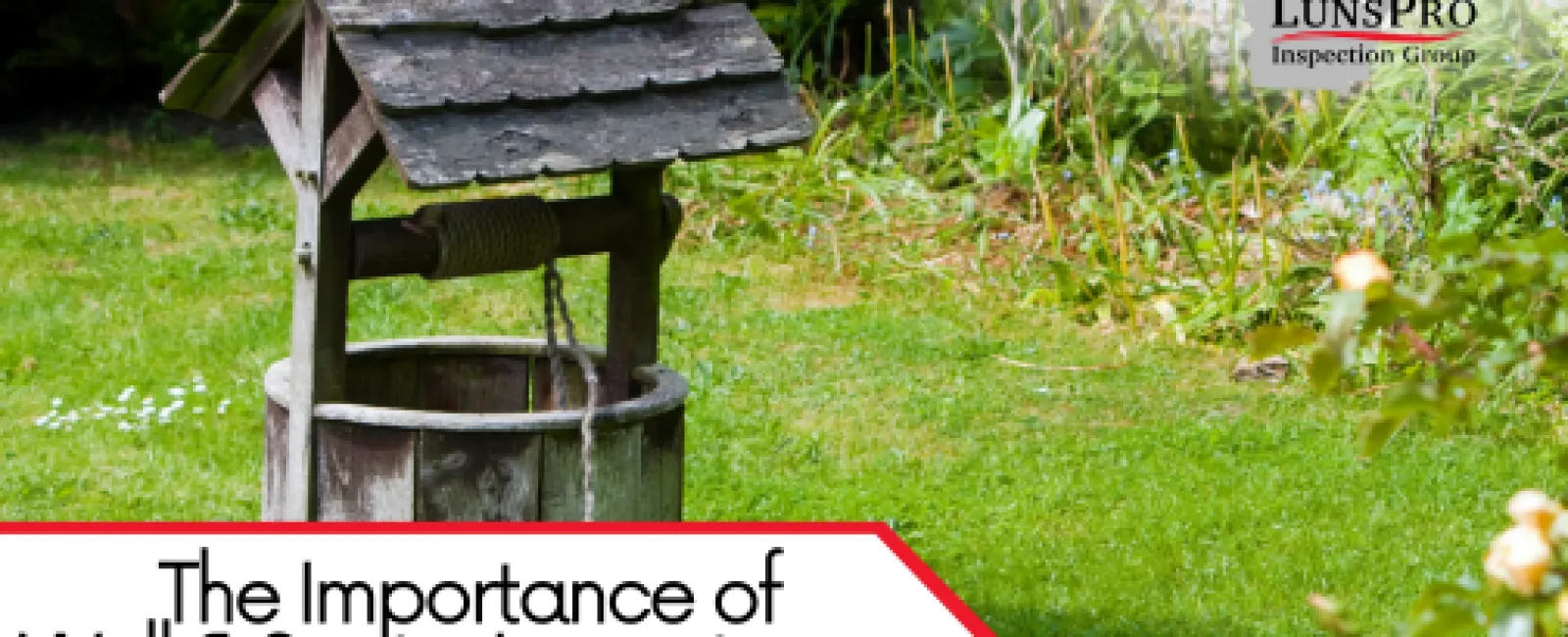Owning a rural home offers a unique blend of freedom, privacy, and connection to nature—qualities that attract many Georgia homeowners. Whether it's a farmhouse in Athens, a country retreat near Alpharetta, or a sprawling lot outside Atlanta, rural living offers perks that urban areas can't match. But this independence comes with distinct responsibilities, especially when it comes to utilities like water and waste systems. Unlike city dwellings that rely on public water and sewer services, most rural homes operate with private wells and septic systems, which require consistent monitoring and maintenance.
Without regular inspections, these essential systems can degrade over time—often without visible warning—leading to contaminated drinking water, unpleasant odors, saturated soil, and even structural damage. For homeowners in North Georgia, especially around Atlanta, Alpharetta, and Athens, routine well and septic inspections are not a luxury—they are a necessity. That's why many rely on LunsPro Inspection Group, a trusted provider of Atlanta, Alpharetta, and Athens Home Inspections, to ensure their property's most vital systems are functioning safely and efficiently.
What Is a Well and Septic Inspection?
A well and septic inspection is a specialized service designed to evaluate the safety, performance, and long-term sustainability of a rural home's private water and wastewater systems. While they are often overlooked during a home's lifespan, these systems are critical to everyday health and hygiene.
A well inspection typically includes:
-
Checking the physical condition of the wellhead
-
Measuring water flow rate and pressure output
-
Testing the pump, pressure tank, and other mechanical components
-
Analyzing water samples for contaminants such as bacteria, nitrates, lead, and other harmful substances
-
Reviewing any historical maintenance or repair documentation
A septic inspection involves:
-
Locating and opening the septic tank and distribution box
-
Measuring sludge and scum layers to assess when pumping is needed
-
Evaluating tank condition, baffles, and filters
-
Checking the integrity of the drain field and its ability to absorb water
-
Identifying potential backups or blockages in the system
Inspections like these are particularly important for homebuyers, real estate agents, and sellers in Georgia's rural markets. Whether you're buying your dream home or maintaining your family property, LunsPro Inspection Group provides the expert insight needed to make informed decisions.
Why These Inspections Are Crucial for Georgia Property Owners
Across Georgia, rural properties frequently operate independently of city services. This makes regular inspections of well and septic systems essential—not just for your property's functionality, but also for the health and safety of your family.
Here are some key reasons why well and septic inspections are non-negotiable for rural Georgia homeowners:
-
Health and Drinking Water Safety: Private wells are vulnerable to contamination from surface runoff, failing septic systems, nearby agricultural chemicals, and aging infrastructure. Without testing, families may unknowingly consume water with coliform bacteria, nitrates, or heavy metals.
-
Environmental and Legal Compliance: A failed septic system can leak untreated waste into surrounding soil or water sources, violating Georgia environmental regulations and potentially leading to legal penalties or property liens.
-
Home Value and Marketability: If a well or septic system fails inspection during a real estate transaction, it can derail a deal or drastically lower the home's value. Buyers and sellers alike benefit from proactive inspections that identify issues early.
-
Foundation Concerns: Poorly functioning septic systems can oversaturate the soil around a home's foundation. Over time, this can weaken structural stability, cause wall and floor cracks, or contribute to basement flooding—issues that Georgia homeowners often encounter, especially during heavy rain seasons.
Common Problems Found in Georgia's Well & Septic Systems
Due to varying soil types, high humidity, and shifting terrain, well and septic issues are common throughout Atlanta, Alpharetta, and Athens. Many rural homes were built decades ago, with systems that may be aging or improperly maintained.
Typical well problems include:
-
Deteriorated or unsealed well casings
-
Faulty submersible pumps or pressure tanks
-
Low yield or inconsistent water pressure
-
Water contamination due to nearby livestock or agricultural activity
-
Leaking pipes or poor drainage around the wellhead
Common septic system issues include:
-
Overflowing or full septic tanks
-
Clogged leach lines or drain field backups
-
Tree root intrusion into septic lines
-
Failed baffles or damaged tank lids
-
Standing water or sewage odors near the drain field
These problems can remain undetected without a professional inspection. Fortunately, LunsPro Inspection Group specializes in identifying these exact issues during Atlanta, Alpharetta, and Athens Home Inspections, helping rural homeowners safeguard their health and property investment.
How Often Should You Schedule Well & Septic Inspections?
The Georgia Department of Public Health recommends that homeowners have their septic systems inspected every 3-5 years, depending on system size and household occupancy. Similarly, wells should be tested annually for water quality, especially if there are infants, elderly residents, or anyone with compromised immune systems living in the home.
If you're planning to sell your rural property or buy one with private systems, these inspections should occur before closing. In many Georgia counties, lenders or insurance companies may even require them as part of the approval process.
By working with LunsPro Inspection Group, property owners can ensure these inspections are conducted thoroughly and professionally—without delays or guesswork. With their in-depth knowledge of rural properties in Atlanta, Alpharetta, and Athens, they provide timely reporting and clear recommendations tailored to Georgia's unique housing landscape.
What to Expect During the Inspection Process
Every well and septic inspection begins with preparation—gathering any available documentation and confirming system locations. Many older homes in Georgia lack proper maps or maintenance records, which makes the role of the inspector even more critical.
The standard process includes:
-
Site Evaluation: Identifying the exact location of the well and septic system, which may be buried or obscured.
-
Well Testing: Evaluating pump performance and collecting water samples for lab testing.
-
Septic Tank Access and Measurement: Opening the tank and measuring solids to determine pump-out needs.
-
System Component Inspection: Checking lids, baffles, and tanks for damage.
-
Drain Field Assessment: Using probing tools to test soil conditions, drainage patterns, and saturation levels.
-
Final Report: Compiling all findings into a detailed, user-friendly report that highlights issues, corrective actions, and maintenance suggestions.
This process, offered by LunsPro Inspection Group, ensures nothing is left to chance. Their inspectors have the experience and equipment to handle rural inspections thoroughly, no matter how remote the property may be.
Georgia-Specific Concerns for Well & Septic Systems
The soil composition and climate across Georgia impact how well and septic systems function. For example:
-
In North Georgia, rocky terrain and dense clay soil can make septic drainage slower, increasing the risk of backups.
-
In the Atlanta metro area, rapid development can cause aquifer depletion, affecting well yield and water pressure.
-
In Athens and surrounding areas, older homes often have outdated systems that may not comply with current regulations.
Each region brings its own set of challenges, and LunsPro Inspection Group brings localized expertise to ensure systems are functioning within safe, legal, and environmental standards.
Real Estate Transactions and Inspection Benefits
If you're buying or selling a home in rural Georgia, a well and septic inspection is not just helpful—it can be a game-changer. These inspections help:
-
Avoid last-minute surprises that delay closings
-
Provide transparency and trust during negotiations
-
Assist buyers in budgeting for future repairs
-
Give sellers the opportunity to correct issues in advance
In Georgia's fast-moving rural housing market, homes that come with clean inspection reports often sell faster and at higher prices. Agents and homeowners throughout Atlanta, Alpharetta, and Athens rely on LunsPro Inspection Group to perform these inspections quickly, professionally, and accurately.
For rural homeowners across Georgia, well and septic systems are the backbone of everyday living. Without proper oversight, these systems can silently deteriorate, leading to significant health risks, environmental harm, and even structural damage to your home. In areas like Atlanta, Alpharetta, and Athens, where rural living continues to grow in popularity, inspections are your best line of defense against unexpected problems.
Whether you're settling into a new home or maintaining a family property, don't leave your water and waste systems to chance. Partner with LunsPro Inspection Group—a leader in Atlanta, Alpharetta, and Athens Home Inspections—to ensure your rural property is as safe and efficient as it is serene.
With thorough evaluations, transparent reports, and localized knowledge, LunsPro gives Georgia homeowners the confidence they need to live well—and worry less. Schedule your well and septic inspection today and take a proactive step toward preserving your home's health and value for years to come.

